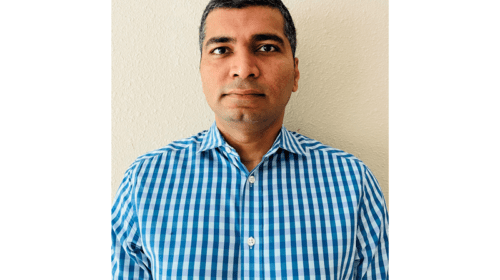Alan Alexeyev: Tell us a little bit about your current position and what you do, as well as how you found a job.
Denis Eremenko: I am a service quality engineer for a large service company, currently based in a technology center in Houston, Texas. My position is focused on optimizing reliability for the equipment that is designed to perform at maximum levels in hostile downhole environments. I am responsible for developing, implementing and sustaining maintenance programs for legacy and new-to-market technologies, as well as defining and organizing maintenance processes for complex equipment used for real-time evaluation of formation properties while drilling a well. Because this equipment consists of sensitive mechanical and electrical modules, every tool must be disassembled, tested, serviced and reassembled after every job to ensure consistent operating efficiency.
I joined the engineering team in Houston three years ago as an intra-company transferee. Prior to that, I worked in the field on locations in Russia. I did that job for four years, gaining a lot of field experience, and I always wanted to expand the scope of my work by looking for an opportunity to transfer to the technology center.
AA: What inspired you to start a career in the oil and gas industry? How did you decide on becoming a petroleum engineer/geoscientist, etc.?
DE: I entered the industry immediately after graduating from the university, where I developed my engineering skills and gained theoretical knowledge. I was excited to apply them in the real world, and one of the opportunities I found was with a service company in the oil and gas sector. This was a totally new field, and very challenging and interesting. I was offered a chance to travel and work on a rig site, making important decisions while drilling, learning about tools that evaluate reservoirs and optimize well profiles. I was also attracted by the diversity of the company’s business and the opportunities to grow my career within the company on the international scale.
AA: You often meet workers in industry who do not have a formal college degree, but in your case how valuable was it to get the university experience?
DE: Although my university degree was not specifically aligned with my current position, I realize that in my academic experience I gained a lot of valuable skills that allowed me to succeed in my career. These include the ability to obtain new knowledge and skills within a short timeframe, and analyze and process large amounts of information, critical thinking, communication and presentation skills, and the ability to work well in a team.
AA: How did you find yourself transitioning from an academic environment to an industry/corporate one? What would you tell people who are about to make such a transition?
DE: Understanding a new industry and corporate environment, with little to no previous exposure, takes time, patience and flexibility. Here are some key points that smoothed my learning curve:
- Observe and absorb: keep your eyes and ears wide open
- Ask questions and learn from the answers
- Pay close attention to details, show your interest and desire to learn
- Maintain respect and professionalism
- Be mindful of diversity: everyone has different backgrounds, goals and unique cultural aspects
- Set your own goals and define a plan to achieve them
- Remember that you work for a private enterprise, and the ultimate goal is to maintain profitability.
AA: Has the industry taken initiatives to smoothly transition young professionals into the oil sector? What, if anything, could be done better?
DE: Big players in the oil and gas industry have an appetite for diversity and have been fostering a culture of developing talents from day one. As a result, many companies in the sector have well-structured training and development programs in place. These programs are constantly evolving and adjusting to the current needs and advances in technology, to structure and deliver the content to the learners.
The cyclical nature of the industry, and the entire global economy on a larger scale, poses a threat to the successful development of talent from within. Companies should be better prepared for the downturns, and continuously feed the people development pipeline with fresh graduates, even when resources are tight. Talent development takes years, and must be looked at as an investment into future growth.
AA: The oil and gas industry has lots of conferences and events. Have you attended any of them? If so, how useful do you find them and what’s your takeaway?
DE: I have participated in a few of them, and I find them very valuable to get acquainted with new professionals in the same field and establish personal contact. These events allow me to become aware of new developments and the work of others in the same or other fields of interest, and exchange experiences and get feedback from the community on your own work. Peer-sharing, networking and collaboration are very important to building your skill set and professional growth.
AA: If you communicate with students on a regular basis, do you think there’s an increased or decreased interest among young people to have a career in the oil and gas industry, in comparison to the past?
DE: I don’t have any direct contacts with young professionals; however, my colleagues who participate in recruiting events see a healthy interest and good candidates among fresh graduates. My company runs a few internship programs and during the past three years we had one intern join our engineering team for a few months.
AA: What advice do you provide to students who have an interest in the oil and gas industry? Should they pursue a career during these constant downturns?
DE: I recommend that students give it a try. First, apply for an internship with several large companies of interest. Internships offer a great opportunity to see the company from within, and get exposure to the industry and the corporate world.
The oil and gas industry is embarking on a multi-year transformation from traditional, fossil fuel energy sources to more sustainable ways to generate energy. Many companies are redefining their strategies to position themselves less as petroleum enterprises, and include a much broader definition of energy in their scope. This shift will continue to create new and diverse opportunities for young people entering the industry.
The economy is cyclic, and every downturn is followed by a growth wave which opens up broader career opportunities. Don’t wait for perfect timing to join the industry; the earlier you can do it, the more knowledge and experience you will gain.
AA: What main technical skills do you think will be needed for the industry in the near term based on your experience so far?
DE: One of the trends in the industry is the digitalization of various aspects of operations. Large companies generate enormous amounts of data. The ability to analyze this information and drive business decisions based on such analysis is a competitive advantage, because this is quickly becoming a necessity in a very competitive landscape.
AA: What would you like to learn in the near future from experienced people who are in their mid-to-late careers?
DE: Transformation of the oil and gas industry offers enormous opportunities to leverage the strengths that the company has developed over decades of operations. It is important to capitalize on that and apply the knowledge and experience of the employees to new sectors, which didn’t exist or in which the company had no prior presence. I’m very excited to learn and participate in this transformation, which is critical for the future of the company.
Alan is a graduate from the University of North Dakota with a Master's degree in Petroleum Engineering. He previously earned his BA in Mathematics from the University of Houston and a BS in Petroleum Engineering from the University of Wyoming. Alan is an active SPE member and has presented at petroleum conferences and exhibitions.
Oil and gas operations are commonly found in remote locations far from company headquarters. Now, it's possible to monitor pump operations, collate and analyze seismic data, and track employees around the world from almost anywhere. Whether employees are in the office or in the field, the internet and related applications enable a greater multidirectional flow of information – and control – than ever before.












